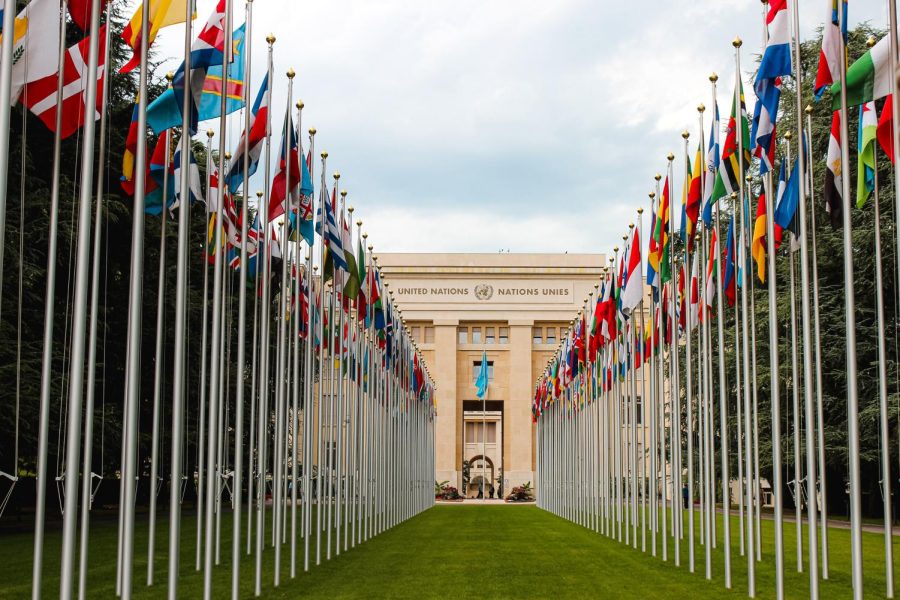The UN Security Council is Ineffective
April 28, 2023
From the bustling cities of New York to the remote communities of Kiribati, almost 200 member states unite under the ensign of the United Nations (UN), which is known as the world’s most important political organization since its establishment in 1945. As the largest supranational organization in the world, the UN aims for the maintenance of international relationships through the role of United Nations Security Council (UNSC). However, with the conflicts between countries occurring in recent history, the UN has been continuously criticized for its incapacity to resolve some of the most severe global issues. And from a variety of events, it is clear that the UN Security Council is ineffective in meeting its objective goals because of the lack of accountability.
Looking back historically, the political division of the superpowers under the Cold War resulted in both the U.S. and Soviet Union perceiving the other as a possible national security threat, which evoked a high wave of criticism towards the UN. A need for reform became more and more pressing since then. Since most of the problems centered around the disputes of the relationships between countries, the Security Council was specifically being criticized for not holding its responsibility for “the maintenance of international peace and security”.
Not only limited to the Cold War, but the UN Security Council has not yet shown that its ability in addressing some of the more modern problems is effective.
Starting off, the Rwandan genocide in 1994 demonstrated a well-explained example of the UNSC’s ineffectiveness. The UNSC put off sending in peacekeepers to Rwanda for 2 months, and if they had sent in reinforcements immediately, they could have stopped the slaughter. Moreover, the UN peacekeeping force that was eventually deployed to Rwanda was ill-equipped, and did not possess the necessary resources and power to effectively intervene. Due to all these chained responses, the genocide lasted for more than three months and killed an estimated 800,000 Tutsis and moderate Hutus.
When the UNSC didn’t take action in Rwanda, its limitation in its efficacy was clear. Taking a look at the UN’s structure, the Council’s five dominant nations can impede swift action, while inadequate troop and resource contributions from member states can hinder the effectiveness of UN peacekeeping missions.
The utilization of veto power by permanent members, particularly in the example of the U.S., has been condemned as a predominant factor in proving the UNSC’s inability to address any ongoing conflicts. Taking a look at the ongoing Israeli-Palestinian conflict, the U.S. has repeatedly used its veto power to prevent the passage of resolutions that are significantly helpful to Israel. In 2018, the U.S. employed its veto to stop a motion that would have helped protect Palestinian civilians in the Gaza Strip. Consequently, this action resulted in deaths of numerous Palestinians at the hands of Israeli forces.
And yet, the misuse of veto power is not only limited to this case of the US, it can be applied to other countries as well. Similarly, France has vetoed resolutions related to the conflict in Mali, citing its own strategic interests in the region. From those cases, we can see that the UNSC’s ability to take effective measures towards resolving ongoing conflicts is being hindered by the misuse of veto power, which ultimately undermines the Council’s overall role.
The UNSC is overall ineffective in addressing some of the most pressing conflicts between countries, whether historical or present. Despite their crucial role in promoting international cooperation, the Council’s lack of accountability has become increasingly apparent because of the failure of their mandate on the affected population.
Photo courtesy of UNSPLASH.COM


JOSU RENESES-IRÍARTE • Mar 5, 2024 at 1:28 PM
I am citing this source in a report i am writting as i belive it contaisn great stuff
However would it be possible for you to mention some of the sources used throught these claism as I belive this could trult increase the credibilty of the article.